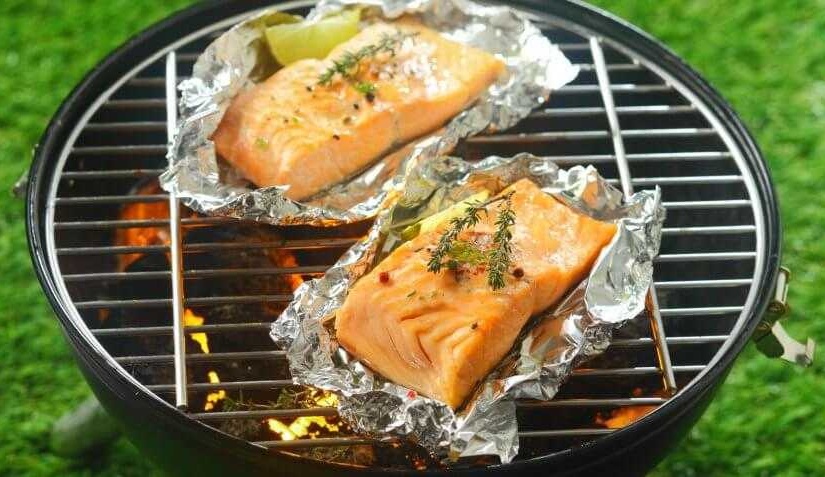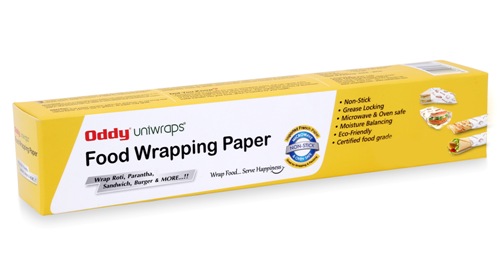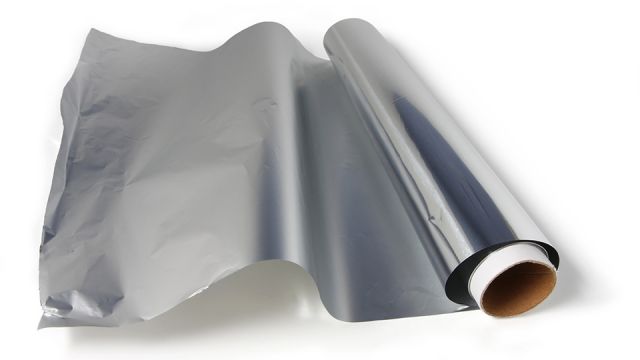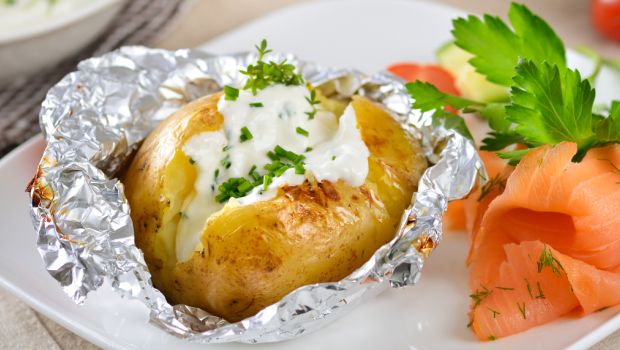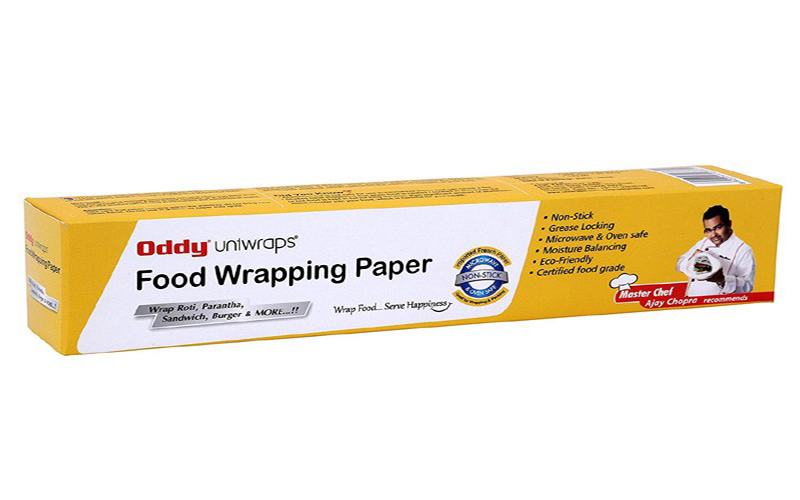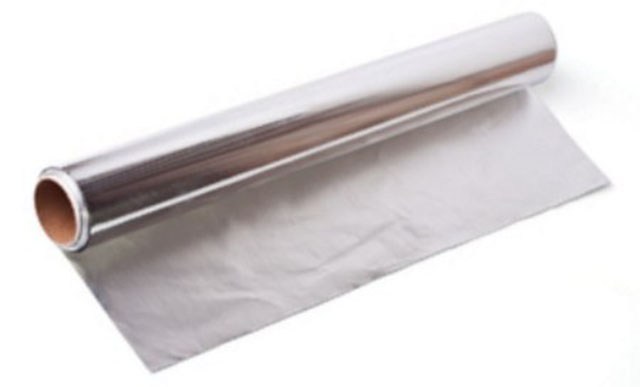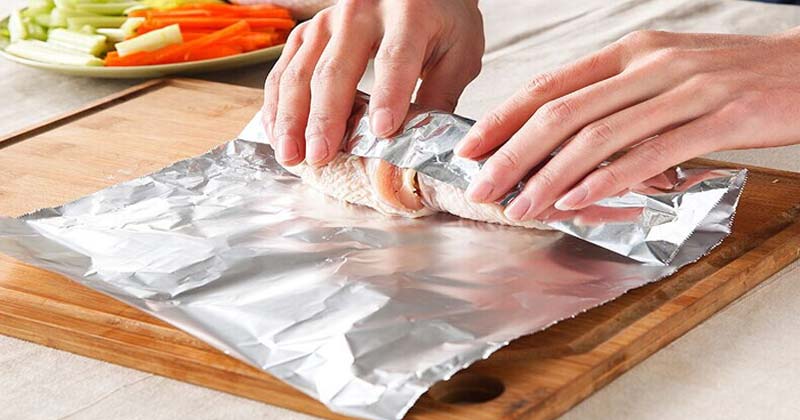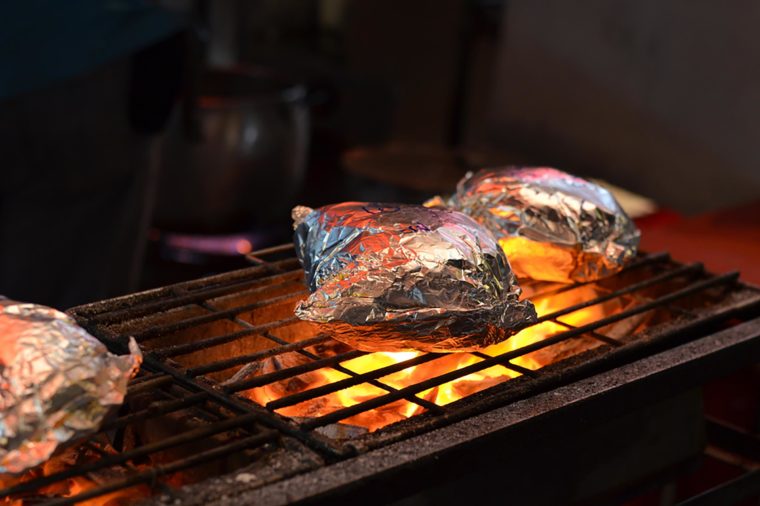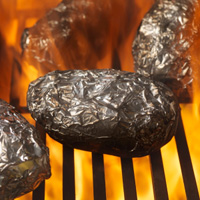Most homes use aluminium foil to pack or store food. It is one of the most versatile packaging items and is used to line baking trays, wrap marinated food items and store food in the refrigerator. A lot of people also prefer foils for cooking.
But, is it safe to use aluminium foil for cooking? Some claim considerable amounts of aluminium can seep into the body when it is used for cooking and pose serious threats to our health. There are others who believe, it is just a myth and aluminium foils are absolutely fine for cooking. To find out the truth, we need to delve a little deeper into the subject.
Aluminium Foil – A Brief Overview
One of the most abundantly available metals on earth, aluminium is used to make foils. But, what exactly is an aluminium foil? It is a paper-thin sheet of aluminium. They are produced on a commercial scale by rolling aluminium slabs until they reach a thickness of 0.2mm. It is used for domestic as well as industrial packaging purposes. It can be used for packing, storing, insulating or transporting food.
At home, you must be using it to store food in the fridge or to line baking trays. Aluminium foils do not allow moisture loss from food and therefore, is preferred to cover food during cooking.
Aluminium is naturally available in most foods including vegetables, fruits, grains, fish, meat and dairy products. Some of it may also come from processed food. But, its absorption in the body is quite limited. Most of it is passed out through faeces and urine. As a result, even if you ingest a small amount of the metal every day, it will not cause any harm.
Cooking with Aluminium Foil
If you use aluminium foils to cook your food, research suggests, there is not much to worry about. Some studies state that wrapping cold or cooled food with foil may not lead to leaching. But, another study showed that cooking at high temperatures with aluminium foil may lead to leaching of the metal, depending on the nature of foods and spices used. However, there is no substantial evidence to prove this finding conclusively.

Despite being an extremely useful and common household product, several myths have always floated around aluminium foils. It has been rumoured to cause kidney ailments and Alzheimer’s disease. But, in reality, the metal poses no threat. We are always exposed to the metal through food, water and medicine. But, it certainly does not appear to be worrisome. In fact, our body is extremely well equipped to flush out excess amounts of the metal. It can only pose a threat to our bones, muscles, tissues and brain when we are exposed to excessive quantities of aluminium.
Benefits of Aluminium Foils
Aluminium foils are used as preferred packaging and cooking materials due to a number of factors. It is extremely beneficial in keeping bacteria and germs at bay. Home cooked meals are likely to be contaminated quickly in the absence of preservatives. As a result, foils are used to wrap or pack them safely. It not only seals the odours, it also keeps the food fresh for longer. Food wrapped in foils can be reheated quickly in an oven because it is resistant to high heat. Foils offer excellent protection against bacteria, disease-causing germs, moisture and light.
Factors Affecting Aluminium Content in Foods
A number of factors affect the aluminium content of your food. When you cook with an aluminium foil, it may permeate into food. But, its quantity is dependent on several factors. Let’s take a look at them.
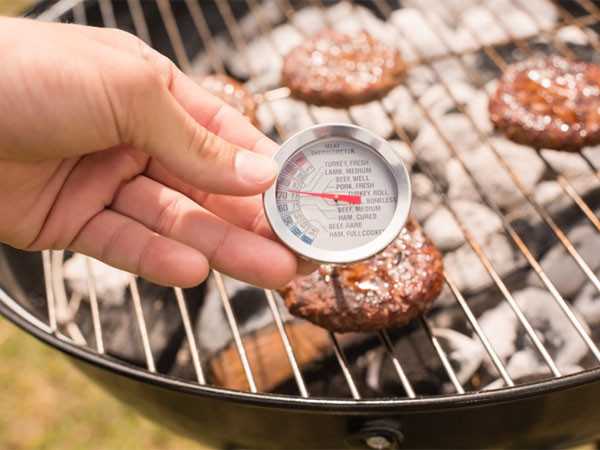
Cooking Temperature: The first and foremost concern is the cooking temperature. If you are preparing food at very high temperatures, the chances of leaching increases.
Ingredients: Not all food items trigger leaching. Some studies suggest that the use of acidic food such as tomato or cabbage may result in more aluminium permeation in food. The amount of salt and spices used to prepare a dish also plays an important role.
But, none of these can be conclusively proved. Most researchers believe, the amount of aluminium taken through food is minimal and is, therefore, deemed safe for consumption.
How to Control Excessive Aluminium Exposure?
Aluminium cannot be completely eliminated from our diet. According to the World Health Organization (WHO), aluminium levels below 2mg per 2.2 pound of body weight per week is harmless. The Food and Drug Administration (FDA) also recommends the same. However, the levels have been found to be lower than this in most people.
If you are still worried about excessive aluminium exposure, follow these simple steps to minimize any risk.
Prefer lower temperatures: It is advisable to cook your food at lower temperatures when you are using an aluminium foil. Try to avoid higher temperatures as much as possible.
Take note of ingredients: Since aluminium leaching is likely to be increased with the use of acidic ingredients, try not to use foils when cooking with tomatoes, lemons or cabbage.
Avoid aluminium cookware: A lot of households rely on aluminium cookware for everyday cooking. Limit its usage to cook or serve food.
Reduce consumption of processed food: Processed food is more likely to have a greater amount of aluminium, when compared with home cooked variants. Reduce its consumption to decrease your aluminium intake.
Should you Quit Using Aluminium Foils
It is one of the most useful household items and they are not considered dangerous. Hence, you can still use aluminium foils to store or cook food. But, if you are concerned about the ill-effects, you may stop using it.
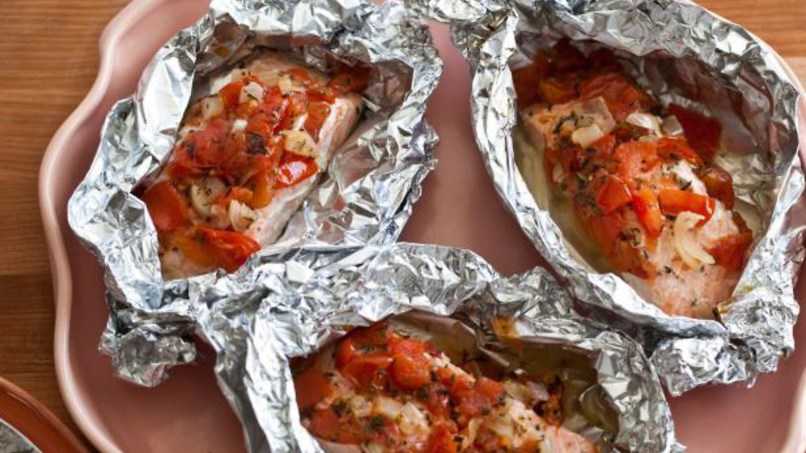
But, remember, none of the studies have conclusively found aluminium to be a health hazard. In fact, all of them believe that the amount leaching into your food is quite insignificant. And since your daily consumption is way below the recommended hazard levels, it might not be a very good choice to completely ditch this useful product. Besides, if you are using it to bake food once in a while, there is hardly any threat to your body.


